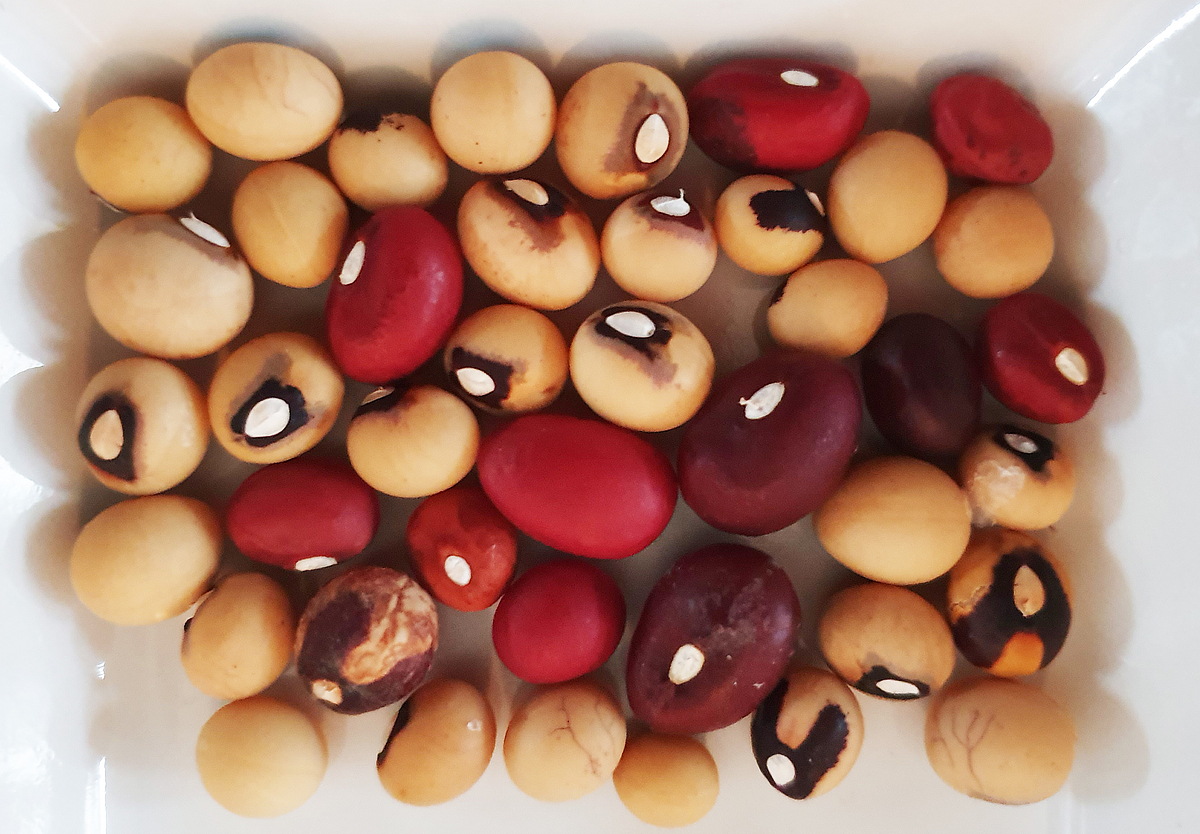The legume Bambara groundnut (Vigna sub terranea) is not only colorful and decorative.
SusTec

Colorful diversity

Protein supplier Bambara groundnut
Distinct ability to form nitrogen-fixing root nodules with compatible rhizobia (white above: groundnuts; brown below: root nodules).
SusTec in a nutshell
Sustainable solutions to elevate local protein-rich crops from subsistence to high-tec innovative products (Acronym: SusTec).
project period
01.02.2017 - 31.08.2021
The project presented
The legume Bambara groundnut (Vigna subterranea) is not only colorful and pretty but also tasty - however hardly known in Germany. Native to West Africa, it is quite drought tolerant and does well in nutrient-poor soils, largely due to its ability to form nitrogen-fixing root nodules with compatible rhizobia. In SusTec's target region in northern Namibia, it is grown by subsistence farmers, often with only low yields. In this region malnutrition, especially protein deficiency, is severe among children (23% are developmentally stunted by malnutrition).
The research of our project aims to improve sustainable cultivation in the region through adapted symbiotic bacteria, and to transform this under-developed crop into innovative products - both for regional needs with viable market chains for local consumption and for potential export products for vegetarian/vegan cuisine. To this end, our international team of microbiologists, plant breeders, food and nutrition specialists at the University of Bremen, ttz Bremerhaven, the University of Namibia (UNAM) and the Namibia University of Science and Technology (NUST) are working together. As a training component, Namibian and German master's students work together, and workshops are designed to ensure a broad transfer of knowledge and applications. Funding by DAAD, start 2021, contact Prof. Barbara Reinhold-Hurek, University of Bremen, Faculty 2.
Sustainable Development Goals
SusTec relates to Sustainable Development Goals 2 (No Hunger), 3 (Health and Well-Being), and 4 (Quality Education), and aims to transfer research to society through direct engagement with the community.




Project manager
Prof. Dr. Barbara Reinhold-Hurek
Molecular plant-microbe interactions
Fachbereich 2 Biologie/ Chemie
Universität Bremen
Cooperations and Sponsoring

Faculty 2 Biology/ Chemistry
Molecular plant-microbe interactions

Martin Schüring, Food

Prof. Percy M. Chimwamurombe, Department of Natural and Applied Sciences
Evelyn Breuer, Institute of Nutrition Food Safety Training and Research



